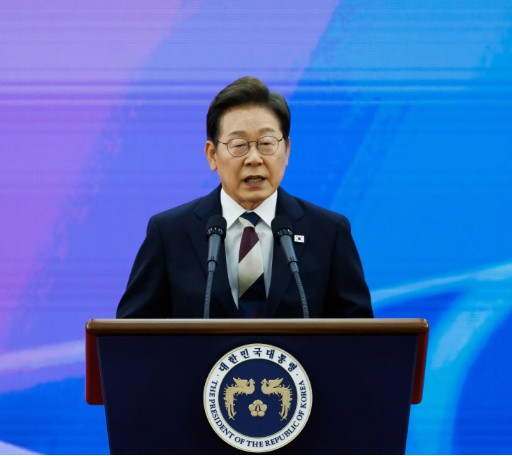President Lee Jae-myung Urges Swift Approval to Combat Economic Pressures
Seoul — South Korean President Lee Jae-myung has delivered his first supplementary budget address before the National Assembly, unveiling a 30.5 trillion won (approximately $22 billion USD) economic package designed to counter mounting domestic and international economic challenges. In a passionate appeal, Lee urged lawmakers across party lines to swiftly pass the proposal, calling it a “vital measure” for national recovery and social cohesion.
The budget speech comes amid growing headwinds for Asia’s fourth-largest economy, including weakening exports, sluggish consumer demand, rising global uncertainty, and recent U.S. tariff hikes. President Lee also cited the Israel-Iran conflict as a destabilizing factor impacting global oil prices and trade.
“We are at a critical juncture,” Lee said in his address. “Extraordinary times demand extraordinary unity. This supplementary budget is not a choice—it is a necessity to protect livelihoods and restore confidence.”
Direct Relief to Citizens and Small Businesses
A core component of the plan includes 13 trillion won earmarked for “livelihood recovery coupons,” one-time payments ranging between 150,000 to 520,000 won per person, depending on income and family size. These funds aim to immediately boost domestic consumption, with digital delivery planned via existing public payment platforms.
The government will also allocate significant funds to support small and medium enterprises (SMEs) still reeling from post-pandemic disruptions and rising costs. Targeted tax relief, low-interest loans, and energy subsidies are included in the proposed stimulus.
“Reviving small businesses is not only about economics it is about protecting the backbone of our society,” Lee said.
Stimulating Investment and Long-Term Growth
Beyond short-term relief, the budget includes provisions for job creation programs, green energy projects, and incentives for private sector investment in high-tech and AI industries. Lee framed the stimulus as part of a broader effort to transition South Korea toward a more inclusive and innovation-driven economy.
The Ministry of Strategy and Finance stated that up to 6 trillion won will be used to accelerate infrastructure projects and renewable energy deployment, with a focus on underserved regions.
Political Stakes and Legislative Challenge
Lee’s address also marks a political test for his presidency, just months after his narrow election victory. He called for bipartisan support, emphasizing that economic recovery should rise above party divisions.
“We cannot allow political gridlock to deepen economic pain. Fair growth, shared opportunity, and unity are not partisan ideals they are national imperatives,” Lee told lawmakers.
However, opposition leaders have voiced skepticism over the budget’s scale and funding sources. Conservative lawmakers warn of rising national debt and inflation risks, while progressives argue for even more expansive social welfare spending.
The National Assembly is expected to begin budget deliberations next week, with a vote anticipated by mid-July.
Global and Regional Context
South Korea’s economy grew just 1.2% in the first quarter of 2025, its slowest pace in nearly two years. The country also faces new U.S. trade barriers targeting South Korean EV and semiconductor exports, adding strain to major industries.
Meanwhile, heightened instability in the Middle East continues to pressure global supply chains, and China’s economic slowdown is dampening South Korea’s trade recovery hopes.
As inflation cools but growth stalls, Lee’s budget proposal is being closely watched by markets and global institutions as a bellwether for East Asia’s broader economic response to compounding global shocks.



